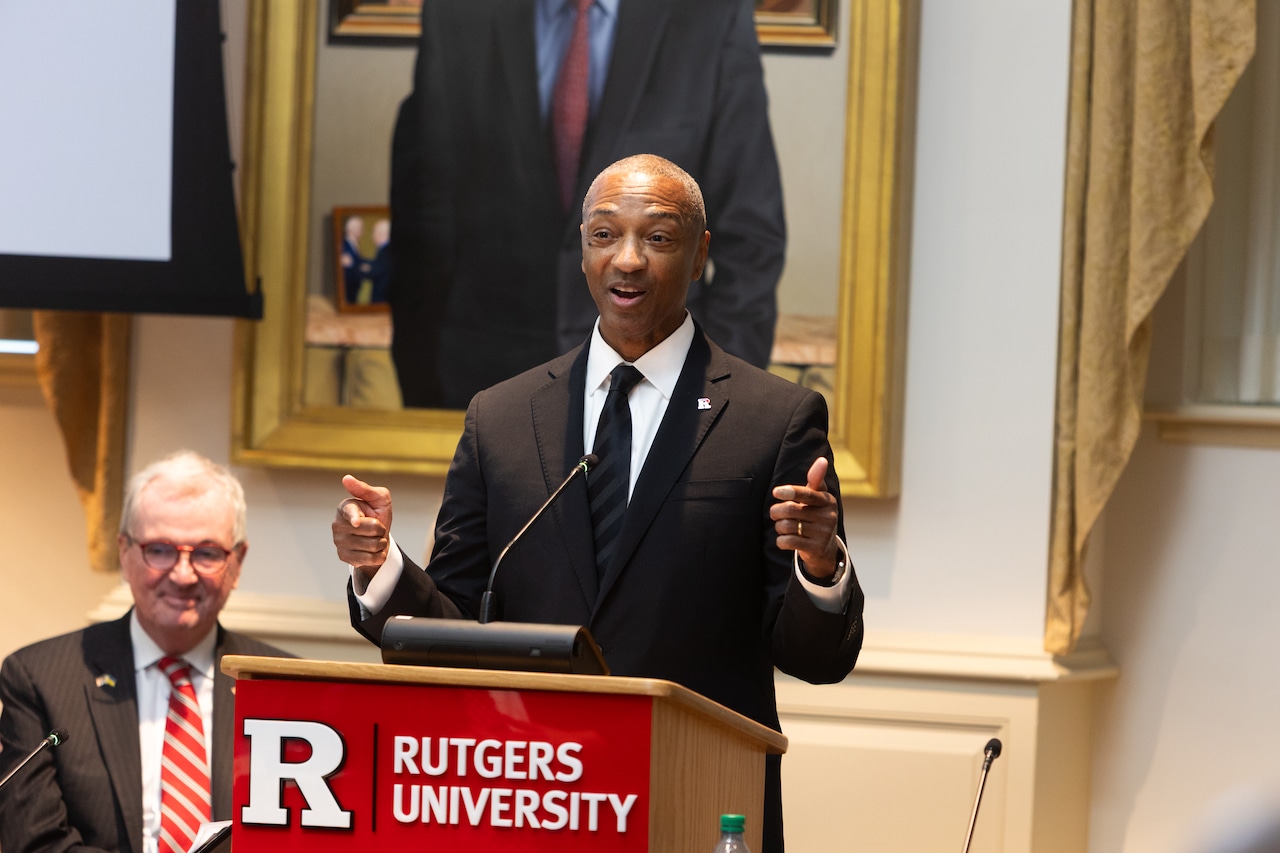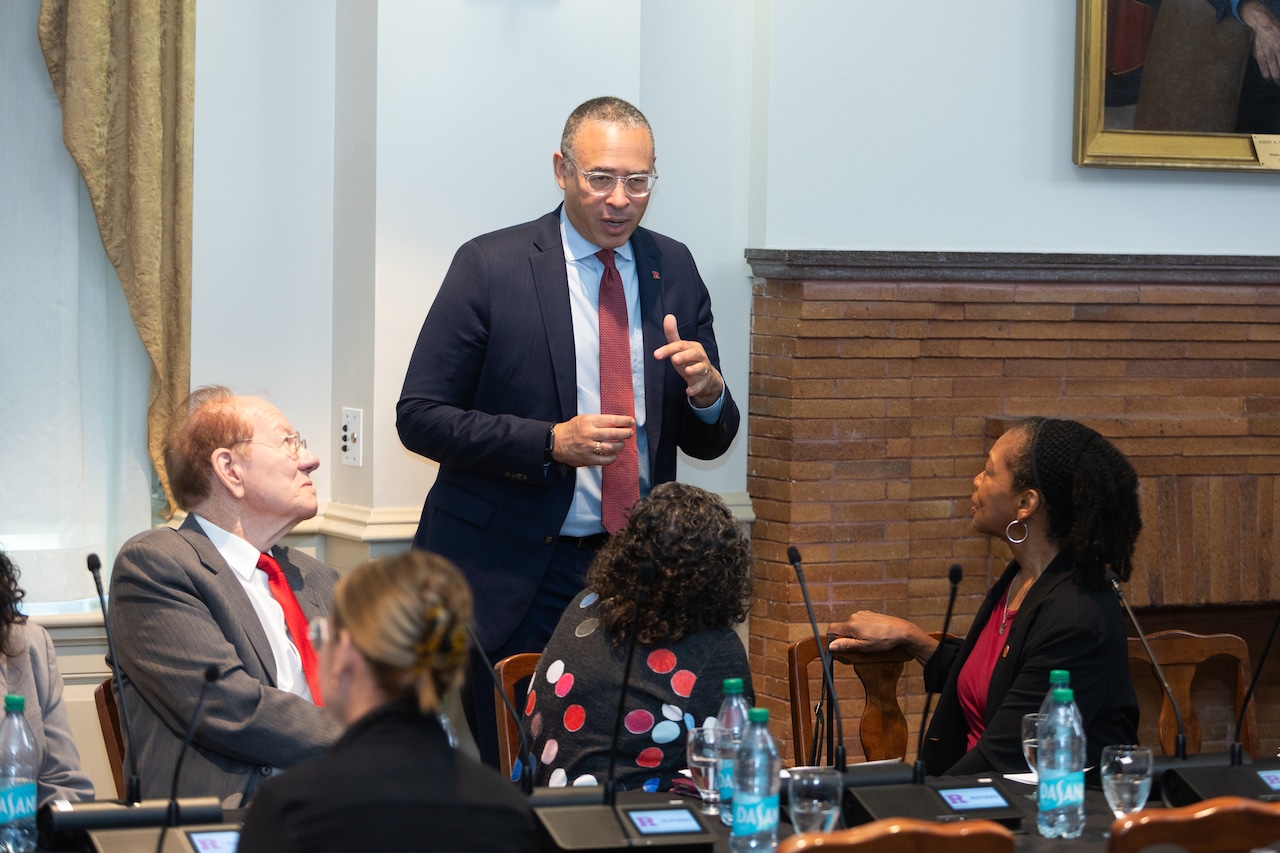Louisiana State University President William Tate IV will get a big raise when he takes over as Rutgers University’s new president this summer.
Tate was earning a base pay of $750,000 a year, plus the ability to boost his pay with bonuses, under a three-year contract extension he signed at Louisiana State in 2024.
At Rutgers, he will earn a base salary of $1.1 million, plus significantly more in incentive pay and several other perks, according to the terms of his contract.
That will make him Rutgers’ highest paid president ever.
Tate was named Rutgers’ 22nd president on Monday. He will take over New Jersey’s state university on July 1, replacing outgoing president Jonathan Holloway.
Under the terms of his deal with Rutgers:
- Tate’s base pay will be $1.1 million a year. He will also be eligible for a maximum bonus of 32% of his base pay — or $352,000 — each year based on a performance review. If he gets the maximum bonus, his annual pay will be $1.452 million.
- Starting in his second year, Tate’s bonus will be at least 10% of his base pay, or $110,000.
- He will receive an additional $375,000 in annual deferred compensation that will be paid at the end of his fifth year at Rutgers. If he stays five years, that deferred compensation will total $1.875 million on top of his other Rutgers pay.
Outgoing president Holloway’s current base pay is $919,639 after five years on the job, Rutgers officials said. It is unclear if he will collect any incentive pay before he leaves next month.
When he announced he was stepping down in September, Holloway was earning a base salary of $888,540, with bonus pay of $214,106, for a total of more than $1.1 million a year, according to his contract.
Though Tate will be the highest-paid Rutgers president in the school’s history, he will not be the highest-paid person at the university. That honor usually goes to coaches, including head football coach Greg Schiano, who earned $6.25 million last year, and head basketball coach Steve Pikiell, who took home $3.25 million, according to an NJ Advance Media analysis published last year.
It is unclear where Tate’s pay will rank among other public college presidents.
An analysis of 2023 college presidents’ pay by The Chronicle of Higher Education found Renu Khator, chancellor of University of Houston, was the highest paid public higher education leader that year, earning over $1.9 million.
Tate agreed to a five-year deal with Rutgers, though the school said he serves “at the pleasure of the Board of Governors.”
In addition to the title of president, Tate will be appointed as tenured faculty, gaining the titles university professor and distinguished professor.
He will also receive several perks as president. The job comes with a house in Piscataway, a $15,000-a-year car allowance and a university driver.
He will get standard university heath and retirement benefits, 25 days annual vacation and the university will cover up to $20,000 a year in attorney fees, his deal says.
If Tate steps down as president and returns to the faculty, he will receive the equivalent of the highest salary of any university professor at Rutgers, the school said.
If the Rutgers board asks him to leave before 2030 without cause, Tate could get up to 18 months pay, the terms of the deal say.
Rutgers also paid for the search to find Tate.
In October, Rutgers hired WittKieffer, a national search firm, to help find its next president. The firm agreed to be paid either $325,000 or 31% of the new president’s total first-year compensation, whichever is lower.
Amy L. Towers — chairwoman of the Rutgers Board of Governors and co-lead the presidential search committee — said the search did not begin smoothly. The wave of executive orders aimed at colleges and universities filed at the start of President Donald Trump’s term made finding a college president willing to make a move to a new institution even more difficult.
“Our search became quite challenging the first two months, as sitting presidents and other leaders in higher education were reluctant to consider new opportunities while their own institutions were facing a crisis,” Towers said.
Stories by Liz Rosenberg
Thank you for relying on us to provide the journalism you can trust. Please consider supporting NJ.com with a subscription.
Liz Rosenberg may be reached at lrosenberg@njadvancemedia.com.


